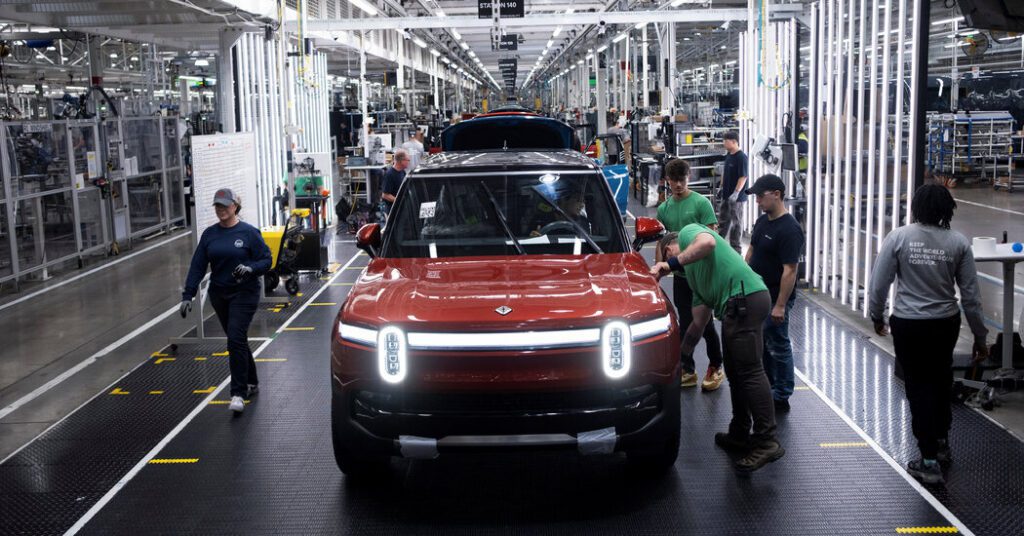German automaker Volkswagen said on Tuesday it will invest up to $5 billion in electric truck maker Rivian, which is struggling to turn a profit, and that the two companies will collaborate on software for electric vehicles.
The deal would create an unusual alliance between the world's second-largest automaker and an electric-vehicle startup that has struggled to meet investor expectations of achieving the kind of success that has made Tesla the world's most valuable automaker.
If successful, the deal would address weaknesses between the two companies: Volkswagen would gain software expertise that auto analysts say is sorely lacking, and Rivian would benefit from cash and the manufacturing expertise of an automaker that churns out nearly 10 million cars a year in factories around the world.
Volkswagen said it would invest $1 billion in Rivian initially, increasing that to $5 billion over time, a major show of faith in a company that is losing tens of thousands of dollars on every car it sells.
Rivian's pickup trucks and sport utility vehicles have been well received in the auto media, but the company has struggled to expand production at its Normal, Illinois, factory.
Rivian shares rose 35% in after-hours trading on Tuesday after the deal was announced.
The electric vehicle market has been divided between companies such as Tesla and Rivian, which make only battery-powered cars, and established automakers such as Volkswagen, General Motors and Toyota, which often struggle to master new technology.
Other than Tesla, none of the new U.S. automakers specializing in electric vehicles have captured much of the market share, and some, including Fisker and Lordstown Motors, have halted production or filed for bankruptcy.
Auto analysts have long viewed Rivian as one of the electric-vehicle startups most likely to survive, in part because it has raised billions of dollars in investments, including from Amazon, which is its largest shareholder and a major customer for its delivery vans.
Ford Motor Co. was once a major shareholder in Rivian, and the two companies previously said they would work together to build SUVs, but that plan never came to fruition and Ford sold most of its stake in Rivian.
Rivian has been trying to cut costs recently and in March indefinitely postponed plans to build a $5 billion factory near Atlanta as part of an effort to stay afloat until it can launch a $45,000 SUV.
The company's cheapest vehicle, the R1T pickup truck, starts at $70,000, limiting its sales to well-heeled new-car buyers; the R1S SUV starts at $75,000. Even at those prices, Rivian lost $39,000 per vehicle it sold in the first three months of this year.
Volkswagen said vehicles equipped with the software developed by the new joint venture will go on sale in the second half of the 2020s. The two companies will continue to sell vehicles separately.
This is a developing story, check back for updates.

